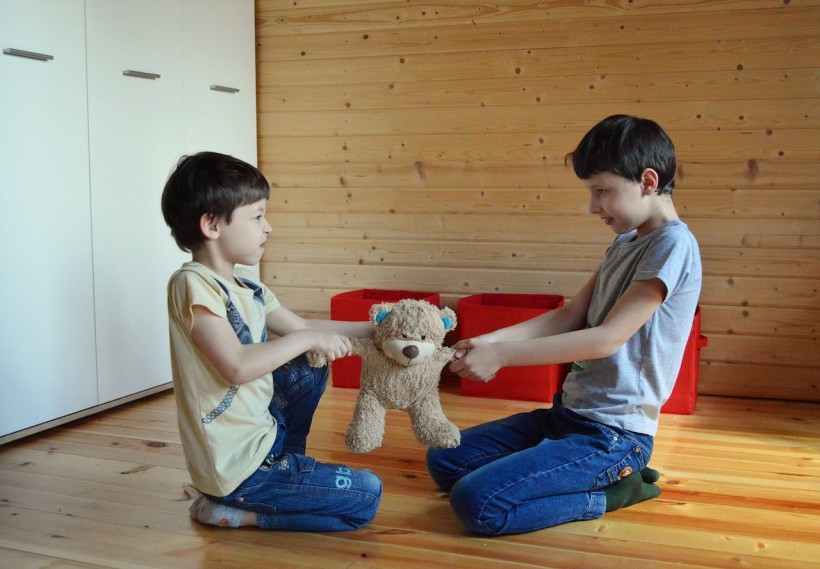Behavioral issues can wreak havoc on even the strongest family if they aren't handled in the right way. This can be especially true in the case of families where one or more children are on the autism spectrum. As much as we all wish that children came with their own personalized operation manuals at birth, they just don't. It is up to the parent to become acquainted with their child's unique personality and health traits and to develop their own operation manual as they travel along life's roads together. In the case of children who have behavioral issues, especially children on the spectrum, developing this manual can be more challenging than expected at times. If the proper steps are not taken by the parent at the right time, the child's behavioral issues will not improve but instead continue to worsen, which impacts not only the child's quality of life but that of the entire family. Starting behavior ABA therapy might be one way to stop the cycle.
Knowing when to ask for help is critical when raising children, and parents need to be aware that there is absolutely no shame in reaching out to professionals when they find themselves unable to cope alone. Parents do not have childcare degrees, but there are people out there who do have the relevant knowledge and can advise stressed-out parents and kids to step out of harmful behavior patterns and into new routines which can restore freedom and comfort to family life. Join us as we take a look at some of the signs that indicate that it may be time to ask the professionals for a little assistance.
General Behavioral Warning Signs
There are some warning signs that are a little bit more general and may appear in a wide range of personality groups. You may consider these the first-tier warning signs. The danger of a complete behavioral breakdown may not be imminent, but it would be wise to ask a professional any pressing questions you may have at this stage.
1. Usual disciplinary methods fail to work.
If discipline strategies that previously worked well with your child are suddenly not working, it might be time to approach a professional who can help you set up new techniques that will nip any unpleasant developments in the bud.
2. Child's behavior interferes with classes.
If your child's behavior has become disruptive in class, neither they nor their classmates will be getting access to the education that they need. Before the issue becomes too much to handle, consult a professional. They may wish to speak to your child's teacher as well to gain a sufficient understanding of the issue.
3. Child's behavior is not in line with their projected development.
Children on the autism spectrum often do not have the same projected developmental patterns as children without autism. This, in itself, is a struggle for many parents to adjust to; if you notice that your child's "amended development plan" is falling behind, it might be time to ask for help to get back on track or address the issue.
4. Child's behavior is impacting their social life.
This is a tricky sign to look out for, as instances may vary. Any indication that disrupts your child's normal social life, be it tantrums, violence towards other children, or any other antisocial behaviors, should be addressed immediately.

Specific Behavioral Warning Signs
1. Aggression
Your child may be making threats against family or friends; they may be starting fights, breaking or throwing things in the home, or purposefully hurting other people.
2. Any Criminal Behavior
In children, these behaviors would most often be setting fires, vandalism, theft, or breaking and entering into places that the child is familiar with.
3. Potential Psychotic Episodes
If hearing voices or playing with imaginary friends are not already part of your child's behavior, consider their sudden appearance a cause for extreme concern.
4. Truancy
Not appearing at appointments, classes, or sessions is considered an extreme behavioral change, and should be noted accordingly.

5. Lack of Emotion or Remorse
Some children on the spectrum may already appear to lack emotion, but a sudden uptake in this or a sudden lack of remorse is cause for concern.
6. Self Harm
Self-harm of any kind is a red flag not to be missed. This could range from seemingly innocuous incidents to obviously problematic and harmful behaviors. Keep a watchful eye and ask for help if you think you need it, and a professional will be able to tell if the behavior is cause for real concern.
Wrap Up
Seeing these signs as they appear and before they become advanced enough to require further disruption of your family's life is essential for a happy home. Parents should not feel ashamed or guilty if these signs do appear: more often than not, these issues are no fault of the parent in question but simply a naturally occurring issue in the affected child's life. The best course of action is a swift one and one that involves professionals who are trained and prepared to deal with these behaviors as well as to understand and address their root causes. You have not failed as a parent because you find yourself in need of a bit of help from time to time!
If you keep a watchful eye out for these signs and act quickly if you see any of them, you'll be able to ensure the best quality of life possible for your whole family. Our advice is to ask for help even if you feel that it may be an overreaction, rather than letting any concerning situation go on for too long. We hope that this information is helpful to you and can assist when you feel the most in need of guidance.
* This is a contributed article and this content does not necessarily represent the views of sciencetimes.com











![Venus Lost Water and Dried Out Due to Chemical Reaction HCO+ Dissociative Recombination [Study]](https://1721181113.rsc.cdn77.org/data/thumbs/full/53493/258/146/50/40/venus-lost-water-and-dried-out-due-to-chemical-reaction-hco-dissociative-recombination-study.jpeg)



